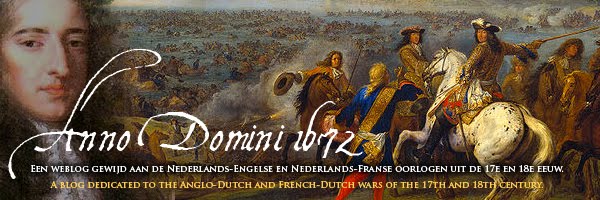
Op 30 juni 1703 vond er bij Antwerpen een veldslag plaats tussen het Staatse Leger onder Jacob van Wassenaar en een Frans leger onder Bedmar en Boufflers. Het is om diverse redenen bijzonder.
In de eerste plaats omdat het een slag was tussen een echt 'Staats Leger' en de Fransen.
In de tweede plaats laat de slag zien, binnen het grote strategische verband hoe de door de Britten zo verafgode Marlborough dacht over zijn bondgenoten: namelijk als kanonnenvoer. Door een strategische blunder (de Fransen deden weer eens wat anders dan hij dacht), presteerde Marlborough namelijk het Staatse contigent
volledig te isoleren van de rest van het geallieerde leger, met als gevolg dat ze voor een overmacht van 2:1 stonden.
Derde bijzondere feit: het Staatse legercorps wist uit de omsingeling te ontsnappen en bracht de Fransen fikse schade toe.
Vierde bijzondere feit: van Wassenaar verliet het slagveld voordat de slag was beeindigd en hij door had dat hij won. Hij moest voor de krijgsraad komen, maar werd vrijgesproken.
Bron: J.K.H.I. Bottema in Mars et Historia, 7e jaargang nummer 3, hier te vinden. Het artikel bevat ook een OOB van beide kanten en om de pret compleet te maken, de vaandels van twee regimenten die bij de slag aanwezig waren, vind de lezer hieronder.

~~
On the 30th of June 1703 a rather remarkable battle occured at the village of Ekeren, near Antwerp in Flanders.
First remarkable feat, a real battle between the States' Army and the French.
Second remarkable feat, it shows how Marlborough, who has an almost god-like reputation in the UK really thought of the Allies, namely as cannon fodder. Because of a strategic blunder (the French didn't exactly do what Marlborough anticipated) the Dutch Corps was isolated from the rest of the Army and found itself alone against French troops that outnumbered them 2:1.
Third remarkable feat: the Dutch Corps broke through the French encirclement and damaged the French dearly.
Fourth remarkable feat: commander van Wassenaar 'left the field early' (basically put: he ran off!), was tried but got aquitted.
As a bonus, the flags of two States' regiments involved in the battle. An article on the battle, with the OOB and literature list, can be found here.




Interesting. I must admit I don't like Marlborough.
BeantwoordenVerwijderenIt's like this. You can't study the Eastern Front of WW2 seriously, without a working knowledge of German and Russian.
BeantwoordenVerwijderenYou can't study the Guerre d'Hollande without a working knowledge of Dutch, French and German. I am the first to admit that my French isn't what it used to be, but I can read it, albeit slowly. To me I find it incredible that most works on the period in English are based on one source, like the works of Chandler or based on works in one language, like most Ospreys.
And Marlborough? I think he is overrated. He fought with a combined Dutch / German army with some English in it, paid for by the Dutch and supplied by the Dutch, who he treated with contempt. Also he didn't manage to end the war did he?
Monmouth is far more interesting, esepcially his 'Dutch' connection, like his place of birth and the siege of Maastricht.